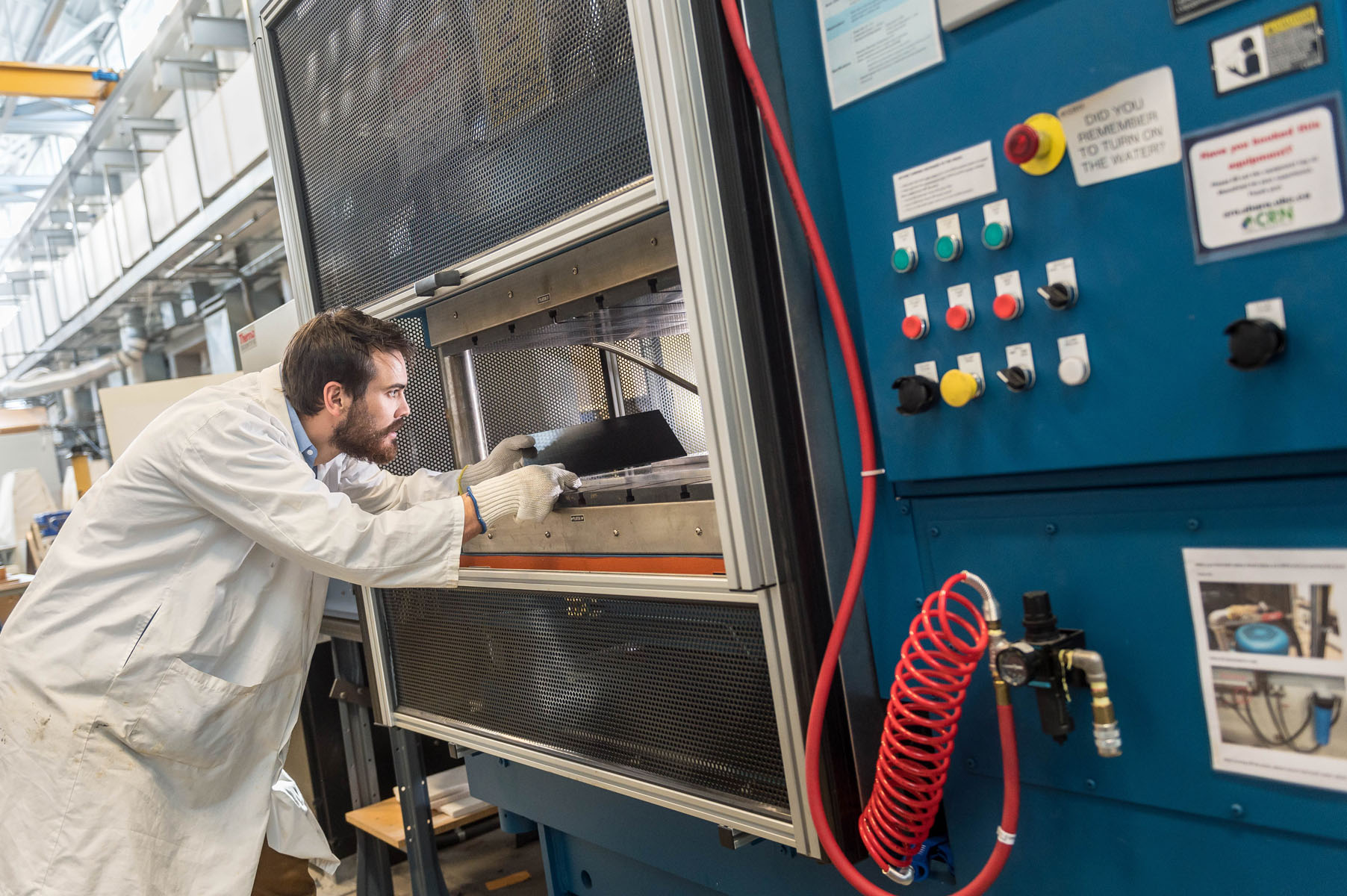CRN and the UBC Data Science Institute are collaborating to merge data science, AI and engineering for advanced materials manufacturing and aerospace technology. The approach combines a physical Learning Factory with a Data Centric Manufacturing focus to update and streamline manufacturing, digitally transforming the composites industry into the Digital era—Industry 4.0.
The Age of Composites is here, with fibre-reinforced polymer-matrix composites transforming global manufacturing for nearly every sector of modern manufacturing. Forecasts predict the composite materials market will reach ~$40 billion by 2024 at a growth rate (CAGR) of 3.3% with greater impact in a composites end-product market valued at ~$114 billion by 2024. In Canada, over 750 companies already use composites in their main business, contributing 25K jobs and $7-9B to the economy.
To meet these expectations even current leading-edge facilities need to improve. However, consistency is key to ensuring safety in every individual part built in a composites factory; once a process is established and a factory commissioned to its specifications, it is often very difficult to change anything.
Every action must be precise and each change to workflow process thoroughly researched. At scale, this is expensive and often not feasible.
Data Centric Manufacturing can bridge the gap, transforming and repurposing digital output from the Learning Factory’s scaled down and controlled environment into research opportunities applicable to the factory floor. Smart sensor data and ‘factory in a lab’ workflow experience help composites industry standards benefit from the digital era — Industry 4.0.
The project comprises:
- Gathering data sets from the Learning Factory’s multiple layers of sensors in a controlled, laboratory-scale environment
- Computer simulation, setting up a digital twin to the physical factory
- Machine learning and AI application
Outcomes include better testing strategies to investigate novel composites, workflow innovation and processing optimization before scaling up to meet industrial factory specifications. Not only will in silico simulation save time and costs, but information from digital twins can guide retrofitting to bring existing factories into Industry 4.0.
Enhanced and more robust machine learning from training with bigger and more comprehensive data sets will further advance industrial digitization with better processing automation and analytic functionality.
Data Centric Manufacturing will direct industrial process and practice evolution from cutting edge academic research to drive innovation, efficiency and safety.



